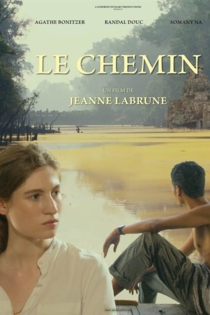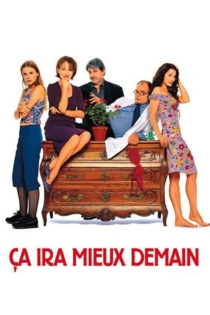
Jeanne Labrune
1950 (75 лет)La part de l'autre
Jeanne Labrune
Laurent Malet, Pierre Malet
Two twin brothers, Romain and Sylvain, live together in an isolated house by the ocean. Between them, violent relationships that oscillate between love and hate. The guardians of the house watch, fascinated and powerless, their dangerous games. Until the day when Hélène, who has already lived with them, returns to look for Sylvain, with whom she has chosen to live.
La part de l'autre
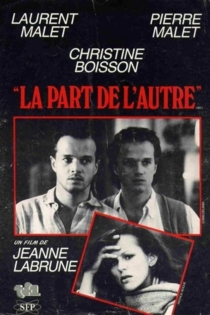
De sable et de sang
Jeanne Labrune
Sami Frey, Patrick Catalifo
Bullfighting, music, medicine, change, and homoerotic possibilities mix in this study of friendship. Francisco is a bullfighter on his way up, so focused even sex doesn't hold his interest. After a minor road accident, he meets a doctor, Manuel, who attends a bullfight, leaving early, retching. His wife, who is also his partner in a string quartet, worries about him: Manuel has a history of breakdown. Manuel, for his part, hates bullfighting and the memories it brings of Franco's Spain. His harsh views undermine Francisco's focus. He accompanies the young fighter to Spain for an important corrida. Will Francisco succeed? And what becomes of this friendship?
Sand and Blood
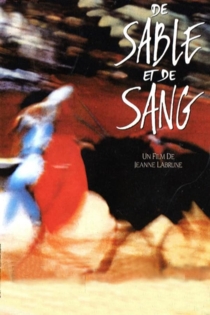
Cause toujours !
Jeanne Labrune
Victoria Abril, Jean-Pierre Darroussin
This way-offbeat comedy from Gallic director Jeanne Labrune concerns two young French women, best friends Léa and Jacinthe. While Jacinthe develops a fixation with the moths that begin to cluster in frightening quantities throughout her apartment, Léa finds herself drawn to a dim-witted fellow employed by a local supermarket, then impulsively decides to follow him home via train. When Léa mysteriously disappears during the days that follow, Jacinthe naturally grows concerned about her friend and decides to investigate.
Cause toujours !
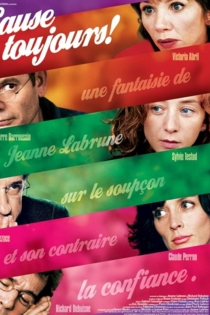
Sans un cri
Jeanne Labrune
Lio, Rémi Martin
Pierre and his wife Anne had a good thing going together, until their son Nicolas was born. Anne traveled with him on all his long truck journeys, and they had frequent and passionate sex. For quite a few years now, Anne has stayed at home to take care of their boy, who is a sickly, weedy little fellow. Pierre is frustrated. Anne is frustrated too but has her almost incestuous feeling for her son to torment her. Even little Nicolas is frustrated, in part due to the knowledge that his father feels that the sacrifice he and his mother made in raising him hasn't been worth the effort. He too has some release in the form of a good relationship with his gigantic dog. When the seething passions of these four discontented mammals reach a crisis point, the result (in this film) is exceedingly ironic.
Sans un cri

Si je t'aime, prends garde à toi
Jeanne Labrune
Nathalie Baye, Daniel Duval
Muriel, a writer nearing 50 whose older lover won't live with her in Paris, meets a man on a train - Samuel, an Arab. He's attracted to her and pursues her, dropping in, asserting himself. She's willing to connect. He's passionate, then boorish, then jealous and possessive. He seems fixed on "Who's the strongest?," while she wants respect and trust. She's self-possessed as well as sexually charged, willing to laugh, and alternately firm and forgiving. He has little money, no immigration papers, few prospects, and a gambling jag. What does each want, and why does she stick with it? Is this colonial strife, war between the sexes, or a love story?
Beware of My Love
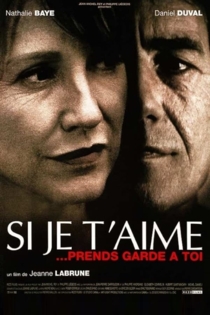
Sans queue ni tête
Jeanne Labrune
Isabelle Huppert, Bouli Lanners
Drawing some intriguing parallels between the work of the prostitute and that of the psychiatrist-both have clients, both charge for sessions, both take on roles that serve the needs, psychological or otherwise, of those they serve, Jeanne Labrune's drama stars Isabelle Huppert and Bouli Lanners as, respectively, Alice, a disaffected call girl and Xavier, a shrink with a crumbling domestic situation.
Special Treatment
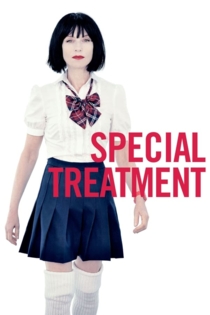
Filmer le désir - Voyage à travers le cinéma de femmes
Marie Mandy
Agnès Varda, Sally Potter
The film consists largely of a series of interviews with female filmmakers from several different countries and filmmaking eras. Some, such as Agnès Varda and Catherine Breillat (both from France), have been making films for decades in a conscious effort to provide an alternative to the male filmmaking model; others, such as Moufida Tlatli (Tunisia) and Carine Adler (England), are relative newcomers to directing, and their approaches seem more personal and less political. The film as a whole manages to cover some important topics in the feminist debate about film -- how does one construct a female gaze, how can one film nude bodies without objectifying the actors (of either sex), what constitutes a strong female role -- while also making it clear that “women’s film” comprises as many different approaches to filmmaking as there are female filmmakers.
Filming Desire: A Journey Through Women’s Cinema

